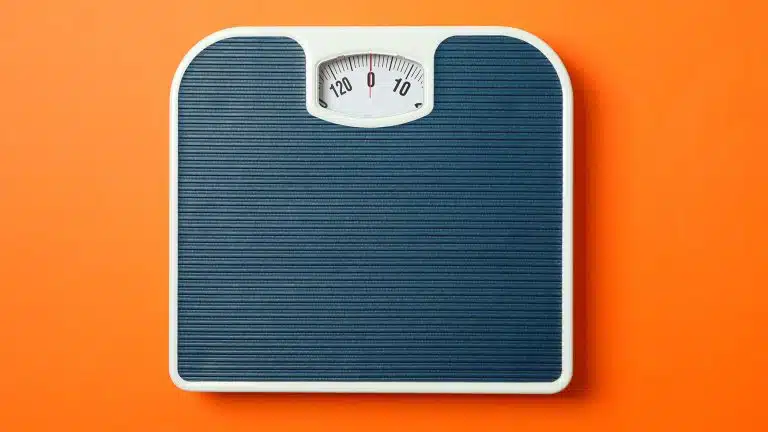Concerta is one brand name for methylphenidate, a prescription stimulant used to treat attention deficit hyperactivity disorder. It may also be prescribed for narcolepsy (intense drowsiness or spontaneous sleep).
Like many prescription drugs, Concerta is a Schedule II substance because of its high potential for abuse and tendency to cause addiction and physical dependence. Many people misuse ADHD medications to improve their concentration or to lose weight.
Concerta & Weight Loss
A common side effect of stimulant medications is loss of appetite, which can lead to weight loss. Some people use Concerta specifically to lose weight, even if they don’t have ADHD.
The FDA hasn’t approved Concerta for weight loss. While Concerta has been found effective in treating binge eating disorder (BED) by decreasing the impulse to binge on food, it’s not approved for that, either. Vyvanse (lisdexamfetamine dimesylate) is the only stimulant approved to treat BED.
Anorexia & Appetite Suppression
Anorexia nervosa is a serious side effect that can result from Concerta use. When some people lose weight by taking the drug, they become obsessed with weight loss and body image to the extent that no amount of weight loss is enough. They refuse to eat or have no desire for food.
While anorexia is an uncommon side effect, appetite suppression affected 25 percent of people in Concerta clinical trials. Some people have to set reminders for meals while taking Concerta (methylphenidate).
While this makes it desirable for weight loss, it can also make it difficult to get proper nutrition. Weight loss through lack of adequate nutrients is damaging to both physical and mental health.
In most cases, the safest way to lose weight is by changing your lifestyle to include healthy foods, plenty of water, and exercise. If these methods aren’t working for you, talk to your doctor about more appropriate weight-loss strategies.
Risks Of Misusing Concerta
Taking Concerta for weight loss or in other ways against medical advice can be dangerous. This includes taking it without a prescription or taking more than prescribed, as well as taking it in any way besides swallowing the capsule whole (as intended).
Substance abuse comes with many risks that outweigh the potential benefits.
Side Effects Of Concerta
If you misuse Concerta, you may have to deal with the side effects that accompany stimulant use.
Common side effects of Concerta are:
- fast heart rate (tachycardia)
- heart palpitations
- dry mouth
- nausea
- headache
- excessive sweating (hyperhidrosis)
- dizziness
- irritability
- nervousness
- restlessness
- insomnia
- anxiety
- depression
While side effects can occur with prescribed use, they may be more likely to appear if you take the drug frequently in high doses.
Concerta Overdose
Unlike some ADHD medications, such as Ritalin (also methylphenidate), Concerta is an extended-release formulation. It hits your system gradually and keeps working throughout the day.
Many people who abuse ADHD medications choose a fast-acting drug like Adderall IR (immediate-release dextroamphetamine/amphetamine). Standard release stimulants take effect quickly and produce more of a high.
For people who want to lose weight, it doesn’t matter how long the drug stays in their system because they’re not treating the symptoms of ADHD.
If you take an extended-release drug in a way other than intended (such as by chewing or dissolving it), you risk overdosing. Too much of the drug will enter your system at once.
Overdose risk also goes up if you combine Concerta with other drugs—especially other stimulants. An overdose of stimulant drugs can cause:
- confusion
- hallucinations
- high blood pressure
- heart palpitations
- racing heartbeat
- muscle twitching
- seizures
Concerta Addiction
Concerta helps people with ADHD concentrate by stimulating the release of neurotransmitters like dopamine to correct a chemical deficiency. If you don’t have ADHD, Concerta can increase your dopamine levels too much, throwing your brain activity off balance.
After taking Concerta for a prolonged period, you’ll likely need a higher dose to produce the same effect as your body and mind adapt (develop a tolerance to it). Taking increased doses also increases the drug’s effect on your brain structure.
The brain adapts to drug use by producing less dopamine naturally. This can make you crave the drugs and feel depressed without them. An inability to reduce how much Concerta you take or stop taking it altogether is a sign of mental dependence (addiction).
If you depend on Concerta for weight loss and experience weight gain if you stop taking it, that can feed the cycle of addiction.
To learn more about Concerta, weight loss, and the risks of misuse, speak with an Ark Behavioral Health specialist today. Our personalized recovery programs can help you or your loved one break free from substance abuse and live a healthier, happier life.
Written by Ark Behavioral Health Editorial Team
©2024 Ark National Holdings, LLC. | All Rights Reserved.
This page does not provide medical advice.
National Center for Biotechnology Information - Novel pharmacologic treatment in acute binge eating disorder
United States Drug Enforcement Administration - Drug Scheduling

Questions About Treatment?
Ark Behavioral Health offers 100% confidential substance abuse assessment and treatment placement tailored to your individual needs. Achieve long-term recovery.
100% confidential. We respect your privacy.
Prefer Texting?
Our friendly support team is here to chat 24/7. Opt out any time.








 Learn More
Learn More








